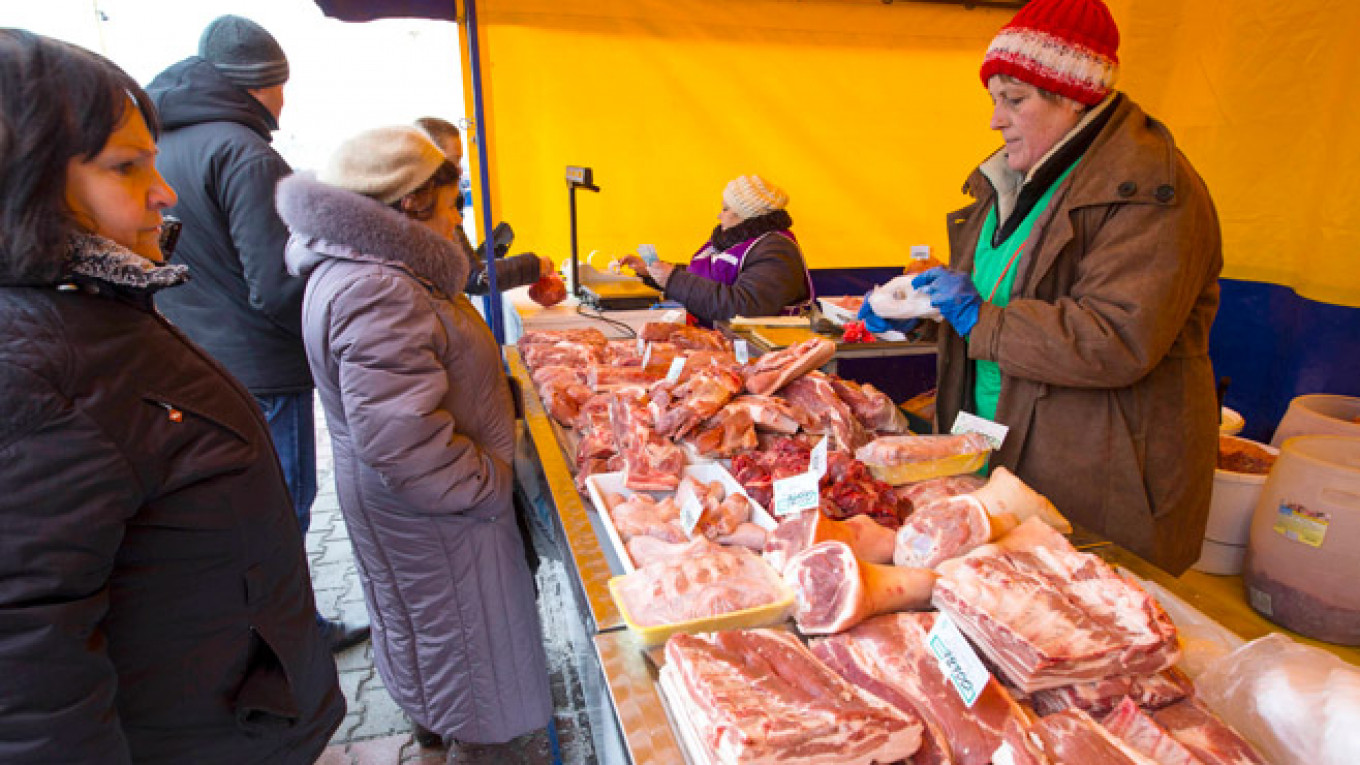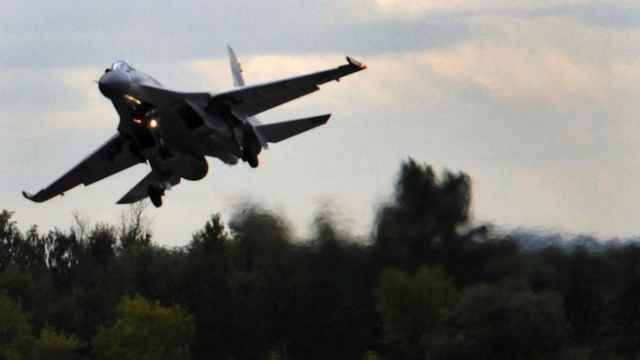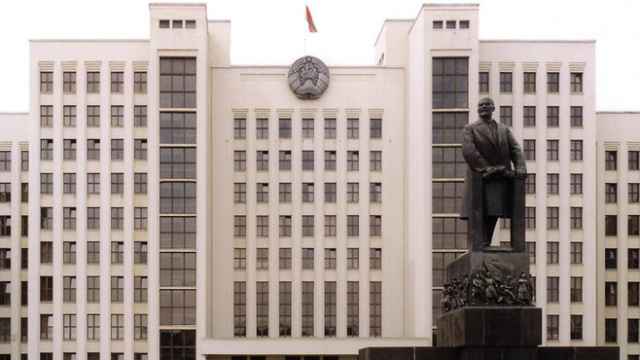Less than a month before the launch of the much-vaunted Eurasian Economic Union, a spat between Moscow and Minsk over a Russian ban on Western food imports highlights relations that are far from ideal.
Russian customs officers earlier this week blamed their counterparts in Belarus for reinstating border clearance procedures officially abandoned in 2011. Belarussian customs dismissed the claims, saying in a statement that they operate in strict accordance with the Customs Union agreement to which they, Russia and Kazakhstan belong.
This latest flareup is the most recent in a dispute born when Moscow banned food imports from a range of Western countries including the European Union states in August in a tit-for-tat response to sanctions tied to Russia's role in the Ukraine crisis.
The spat is a bad sign for the Russia-sponsored Eurasian Union project, which Moscow hoped would join many of the former Soviet states into an economic bloc to stand beside the EU.
From Russia's perspective, aid-thirsty Belarus has ungratefully sought to turn the ban to its advantage. Last week, Russia's food safety watchdog said it had stopped 77 tons of plums and apples at Russia's border because they arrived with sanitation clearance documents indicating that the fruit came from Chile while in reality the documents originated in sanctioned Holland.
Because of actions like this, "Russia was forced to restrict imports from Belarus," said Dmitry Bolkunets, an economist at Moscow's Higher School of Economics.
Minsk has not officially taken Moscow's side on sanctions, but friendlier relations could have been expected from a country heavily dependent on Russia's discount prices for natural gas and oil, he added.
And the customs-dodging may be much bigger than a few tons of fruit. In November, Russian customs reported an 80 percent growth of sanctioned imports to Belarus and voiced concerns that some products could be smuggled into Russia. The joke about the Moscow supermarket stocked with fresh mussels from landlocked Belarus is already well-worn.
Belarussian President Alexander Lukashenko, however, has repeatedly waved off the accusations that Belarus is re-exporting sanctioned EU goods under alternate labels. He also refused to impose restrictions on transit from Europe, saying it was not the business of Belarus to enforce Russia's self-imposed ban.
"Do they want to close Belarus as a transit state? But this is an asset of ours, we cannot allow that," Lukashenko was quoted by BelTA news agency as saying last week.
Nor, from Belarus' perspective, does it have a clear legal obligation to go along with Russia's ban.
"There are no norms within the Customs Union that clarify how exactly Russia's ban on some of the imports from Europe should be enforced," said Vladimir Tchikine, customs and international trade partner at law firm Goltsblat BLP.
Russia still has not yet officially notified the Eurasian Commission, a regulatory authority within the union, that its food ban was in place.
Following its food embargo, Russia initiated a working group with Belarus and Kazakhstan to come up with means to restrict the transit of sanctioned Western products, but concrete proposals have not been worked out so far.
Instead, it appears that Russia may be resorting to strong-arming Belarus on the issue. In October, Russia's food sanitation watchdog banned a range of meat imports from Belarus over African swine fever fears. Starting from Nov. 30, Belarussian exports passing through Russia to Kazakhstan will also be subject to border checks.
While swine fever concerns may indeed exist, Russia has a history of banning foods from countries it has poor political relations with, including many Ukrainian food exports over the last year.
Meanwhile, the Eurasian Economic Union, a free-trade zone that would further liberalize trade between Customs Union partners Russia, Belarus, Kazakhstan and Armenia, is set to come into effect beginning in 2015. The Eurasian Union was heavily lobbied for by Russia and was treated as a landmark when it was inked in May.
But the union may fray if current problems between Belarus and Russia do not subside or, even worse, boil over. Such a peak in tensions, Bolkunets said, will undoubtedly "have a negative impact on the future of the Eurasian Union."
Contact the author at a.panin@imedia.ru
A Message from The Moscow Times:
Dear readers,
We are facing unprecedented challenges. Russia's Prosecutor General's Office has designated The Moscow Times as an "undesirable" organization, criminalizing our work and putting our staff at risk of prosecution. This follows our earlier unjust labeling as a "foreign agent."
These actions are direct attempts to silence independent journalism in Russia. The authorities claim our work "discredits the decisions of the Russian leadership." We see things differently: we strive to provide accurate, unbiased reporting on Russia.
We, the journalists of The Moscow Times, refuse to be silenced. But to continue our work, we need your help.
Your support, no matter how small, makes a world of difference. If you can, please support us monthly starting from just $2. It's quick to set up, and every contribution makes a significant impact.
By supporting The Moscow Times, you're defending open, independent journalism in the face of repression. Thank you for standing with us.
Remind me later.






